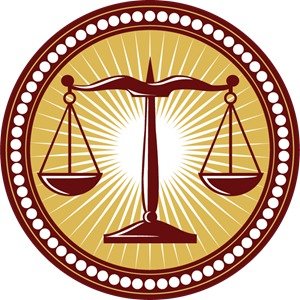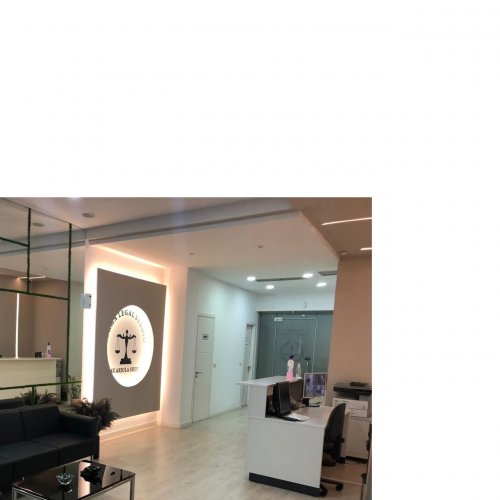Best Collaborative Law Lawyers in Tirana
Share your needs with us, get contacted by law firms.
Free. Takes 2 min.
Free Guide to Hiring a Family Lawyer
List of the best lawyers in Tirana, Albania
About Collaborative Law in Tirana, Albania:
Collaborative Law is a legal approach that aims to resolve disputes amicably, without going to court. In Tirana, Albania, this practice allows individuals involved in family law matters, such as divorce, child custody, and property division, to work together with their lawyers to reach mutually acceptable agreements. Collaborative Law focuses on open communication, problem-solving, and reaching a resolution that benefits all parties involved.
Why You May Need a Lawyer:
There are various situations where you may require legal help in Collaborative Law. Some common scenarios include:
- Divorce: If you are planning to get divorced and want to avoid litigation, a lawyer specializing in Collaborative Law can guide you through the process.
- Child Custody: When determining child custody arrangements, Collaborative Law provides a framework for parents to collaborate and develop a parenting plan that meets the best interests of the child.
- Property Division: If you and your spouse need assistance in dividing marital assets, a lawyer experienced in Collaborative Law can help negotiate and reach a fair agreement.
Local Laws Overview:
Collaborative Law in Tirana, Albania operates within the framework of the Albanian Family Code. The Family Code provides guidelines and regulations on matters related to marriage, divorce, custody, and property division. It is important to consult with a lawyer who is well-versed in both Collaborative Law and the specific provisions of the Family Code to ensure compliance with local laws.
Frequently Asked Questions:
1. How does Collaborative Law differ from traditional litigation?
In Collaborative Law, both parties and their lawyers commit to resolving the dispute outside of court by engaging in open and constructive communication. It encourages a cooperative approach, aiming for mutually beneficial agreements, whereas traditional litigation relies on a judge to make decisions.
2. What are the benefits of choosing Collaborative Law?
Collaborative Law offers several advantages, including:
- Greater control over the outcome
- Reduced conflict and stress
- Increased privacy
- Lower costs compared to court proceedings
- Preservation of relationships, especially beneficial in family law matters
3. Is Collaborative Law legally binding in Tirana, Albania?
Yes, agreements reached through Collaborative Law are legally binding once approved by the court. It is crucial to work with a lawyer who can assist in ensuring all necessary legal requirements are met.
4. What if Collaborative Law negotiations break down?
If the Collaborative Law process fails and the parties are unable to reach an agreement, both lawyers must withdraw from the case. This encourages sincere efforts to find common ground during negotiations.
5. Can Collaborative Law be used in non-family law matters?
While Collaborative Law is commonly associated with family law, it can also be applied to other types of disputes, such as contract disputes, employment issues, and probate matters. Collaborative Law allows parties to work together to find solutions regardless of the specific legal area.
Additional Resources:
For further information and assistance in Collaborative Law, you may find the following resources helpful:
- The Albanian Collaborative Law Association (ALC): A professional organization that provides support and resources for individuals seeking collaborative resolution in legal matters.
- Tirana Bar Association: Contact the local bar association to get a list of lawyers specializing in Collaborative Law.
Next Steps:
If you require legal assistance in Collaborative Law, follow these steps:
- Identify your specific legal needs and gather necessary documents and information.
- Research and select a lawyer with experience in Collaborative Law and the relevant area of your case.
- Arrange an initial consultation with the chosen lawyer to discuss your situation and evaluate if Collaborative Law is the right approach for you.
- If you decide to proceed, work closely with your lawyer to gather all required information and engage in productive negotiations.
- Review and finalize the agreements with the assistance of your lawyer.
- Seek court approval of the agreements to make them legally binding.
Lawzana helps you find the best lawyers and law firms in Tirana through a curated and pre-screened list of qualified legal professionals. Our platform offers rankings and detailed profiles of attorneys and law firms, allowing you to compare based on practice areas, including Collaborative Law, experience, and client feedback.
Each profile includes a description of the firm's areas of practice, client reviews, team members and partners, year of establishment, spoken languages, office locations, contact information, social media presence, and any published articles or resources. Most firms on our platform speak English and are experienced in both local and international legal matters.
Get a quote from top-rated law firms in Tirana, Albania — quickly, securely, and without unnecessary hassle.
Disclaimer:
The information provided on this page is for general informational purposes only and does not constitute legal advice. While we strive to ensure the accuracy and relevance of the content, legal information may change over time, and interpretations of the law can vary. You should always consult with a qualified legal professional for advice specific to your situation.
We disclaim all liability for actions taken or not taken based on the content of this page. If you believe any information is incorrect or outdated, please contact us, and we will review and update it where appropriate.












